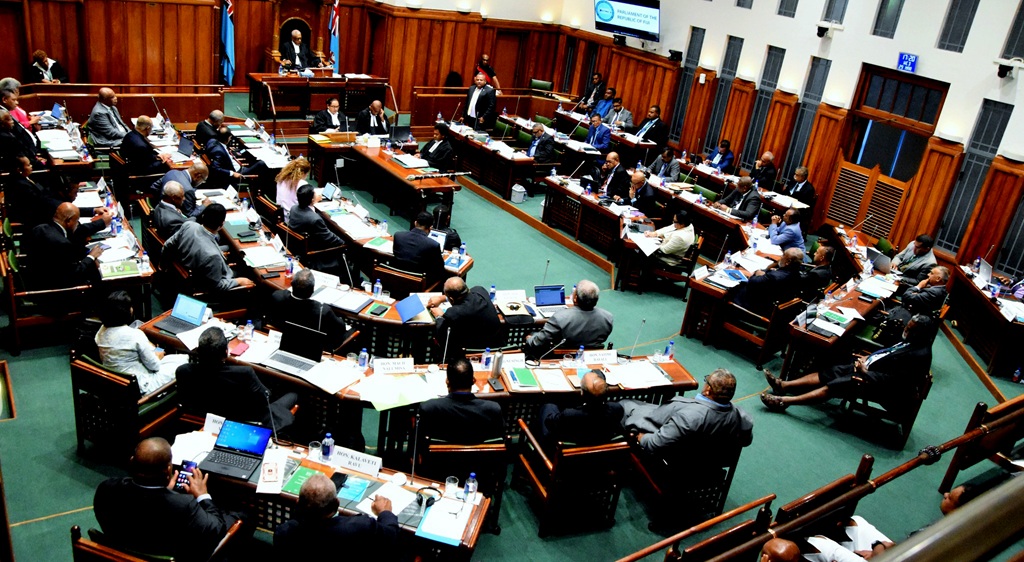The Constitution’s clear intention
In my last op-ed, I discussed how the current Parliament no longer reflects the will of the people as expressed in the last elections. This outcome, which is a travesty for democracy, has arisen because of a particular legislative provision that is at odds with the intent and spirit of the Constitution. That provision is Section 20 of the Political Parties (Registration, Conduct, Funding and Disclosures) Act 2013.
The 2013 Constitution is unambiguous on the question of party loyalty. In our nationwide proportional representation system, seats are allocated to parties in proportion to the votes they receive. Voters do not elect individuals who are nominated by a party as independents; they elect their parties.
Section 63 of the Constitution makes it explicit that a seat is lost if an MP:
- “resigns from the political party for which he or she was a candidate at the time he or she was last elected to Parliament” (s.63(1)(g));
- “votes or abstains from voting in Parliament contrary to any direction issued by the political party” without permission (s.63(1)(h)); or
- “is expelled from the political party … in accordance with the rules of the political party relating to party discipline” (s.63(1)(i)).
So strict is this regime that even a single vote against the party line triggers the loss of a seat. That is how clear the Constitution is: party loyalty is not optional, it is mandatory. The seat belongs to the party, not the individual.
Anti-defection in Fiji’s constitutional history
Fiji’s constitutions (1970, 1990, 1997, 2013) have progressively introduced formal rules requiring MPs to toe the party line. The 1970 Independence Constitution did not contain any special anti-defection clause beyond normal disqualification grounds (e.g. citizenship loss or criminal conviction). In practice, MPs could change or leave parties without automatic loss of their seat under the 1970 framework.
The first explicit anti-defection rule came with the post-1987 Coup 1990 Constitution. That constitution provided that a member of the House of Representatives “shall vacate” their seat if the member “ceases to be a member of the political group or party in the House whose symbol he used for the purpose of his election”. In effect, if a MP left or was expelled from the party whose electoral symbol they ran under, they lost their seat. This 1990 clause applied regardless of whether the departure was voluntary or forced (by resignation or expulsion). Notably, the 1990 provision did not explicitly address voting against a party whip – only outright change of party membership triggered disqualification.
The 1997 Constitution retained and expanded the anti-defection rules. Article 71(1) lists the circumstances for vacating a House seat. In addition to standard grounds (resignation, bankruptcy, absence, etc.), clause (g)–(h) provided:
“(g) [MP] resigns from the political party for which he or she was a candidate at the time he or she was last elected…;
(h) [MP] is expelled from the political party for which he or she was a candidate…;
(i) [MP] is nominated as a candidate in a different constituency…; or
(j) [MP] is appointed as a member of the Senate.”
To enforce (g)–(h), the Constitution required formal party certification. Under s.71(3)–(5), a member’s seat became vacant only upon receipt by the Speaker of a written notice (signed by the party’s President and Secretary) of the MP’s resignation, or (after 28 days) of their expulsion. If the expelled MP challenged the expulsion in court, the seat remained occupied pending final judgment. In short, the 1997 provisions tightly bound MPs to their party, but also imposed procedural safeguards (notice periods and dispute process) before a seat was vacated.
The 2013 Constitution preserved these anti-defection mechanisms and added a new “whipping” rule. Section 63 provides:
“The seat of a member of Parliament becomes vacant if the member— (g) resigns from the political party… (h) votes or abstains from voting in the House contrary to any direction issued by the political party, without obtaining prior permission of the party…; or (i) is expelled from the political party… (subject to similar notice requirements).”
Thus, under the 2013 Constitution an MP not only loses their seat for leaving or being expelled by their party, but even for voting (or abstaining) against a party directive on parliamentary business. As before, seat vacancies occur upon receipt of a party notice: Section 63(3)–(5) requires the Speaker to act immediately on the receipt of such a notice from the party leadership and expel the MP. If an expelled member contests the validity of the expulsion in court, the member remains “suspended” but not formally ousted pending the court’s decision. These rules effectively enlist the Speaker (and courts, if invoked) to enforce party discipline on each MP.
Therefore, the direction of travel in Fiji, from one constitution to another, has always been toward tighter rules to prevent MPs from undermining the will of the voters expressed through parties.
Why anti-defection rules matter for democracy
Far from being some authoritarian quirk, anti-defection laws are commonplace in democracies. India, South Africa, and New Zealand all have them. Even consolidated liberal democracies have recognised the need for them under proportional systems. New Zealand’s “waka-jumping” law ensures list MPs cannot distort proportionality by abandoning the party voters chose. South Africa learned through bitter experience that allowing floor-crossing in PR legislatures distorted election results and had to abolish it. India’s Tenth Schedule (of the Constitution) was passed to disqualify MPs who defect or vote against their party, introduced after decades of instability caused by “Aaya Ram, Gaya Ram” floor-crossing.
The rationale is simple but profound:
1. Proportionality must be preserved. In PR, seats belong to parties in proportion to votes won. If MPs can defect, the seat distribution no longer reflects the election outcome.
2. Voter choice must be respected. Voters cast ballots for parties, not individuals. If an MP switches, they carry the people’s vote into a camp voters never endorsed.
3. Stability must be safeguarded. Without anti-defection rules, governments can be toppled through inducements and opportunism, leaving policy hostage to personal ambition.
In PR systems especially, it is a categorical principle: the seat belongs to the party. MPs cannot become independents, because they were not elected as independents. They rode in on the back of their party’s aggregate votes. More so, in a context where they got elected on their party leader’s coat-tails, the law cannot allow them to become turncoats. To allow them to defect is to trample upon the rights of voters who endorsed one party and its ideologies and policies, not another.
Section 20: Wholesale defection by law
Against this backdrop, section 20 of the Political Parties (Registration, Conduct, Funding and Disclosures) Act 2013 is in my view a direct affront to the Constitution.
- Section 20(2): If a party is deregistered, its MPs “shall continue to serve for the remainder of their term as independents or as members of other political parties.”
- Section 20(3): If deregistration was caused by an MP’s willful act, “that person shall be deemed to have vacated his or her position as a member of Parliament.”
These provisions are flatly inconsistent with section 63 of the Constitution.
Section 63(1)(g) says resignation from your party ends your seat. Section 63(1)(h) says even one vote against the party ends your seat. Yet Section 20(2) of the Political Parties Act 2013 allows something far worse: it permits MPs, en masse, to abandon their deregistered party, align to or join another, and still keep their seats. That is not just inconsistent with section 63, but is contrary to its very spirit. If the Constitution intends that even a single vote of disobedience is enough to lose your seat, how can a statute permit wholesale defection to another party?
Section 20(3) is also problematic as it creates an entirely new ground for disqualification (misconduct leading to party deregistration) which is nowhere in Section 63’s exhaustive list.
A travesty for democracy
The democratic consequences are devastating. Section 20(2) could allow an entire opposition party, once deregistered, to cross over to the government benches, flipping the majority without a single voter’s say, as has indeed already happened in Fiji’s case. That has been a great travesty for democracy and has now lead to a compromised legislature.
Voters have seen the mandate they gave one party converted overnight into a mandate for another.
The Constitution was designed to prevent precisely this outcome, enforcing party loyalty so strictly that even minor disobedience is punished to secure the voter’s will. However, the complete defections permitted under Section 20 of PPR eviscerates the very principle the Constitution enshrines.
Conclusion
The conclusion is unavoidable. Section 20 of the Political Parties Act 2013 is in my opinion unconstitutional because it contradicts section 63’s stringent and exhaustive list of disqualifications and defies the Constitution’s spirit.
It permits wholesale defections that the Constitution explicitly prohibits and invents new grounds for removal not authorised by the supreme law.
Anti-defection rules are not only common worldwide, they are necessary in PR systems like ours. They protect proportionality, voter choice, and political stability. Fiji’s Constitution got this right. Section 20 of the Political Parties Act got it wrong.
To protect democracy and uphold the people’s will, section 20 must be challenged.
- Nilesh Lal is the executive director of Dialogue Fiji. The views expressed in this article are the author’s and not necessarily shared by this newspaper.

Nilesh



